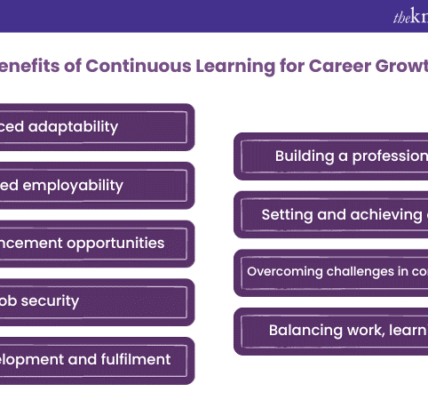In today’s dynamic job market, the importance of soft skills is increasingly recognized alongside technical abilities and qualifications. Soft skills, often referred to as interpersonal or emotional intelligence skills, play a crucial role in determining an individual’s success in the workplace. This 1000-word article examines the growing significance of soft skills in modern job markets, their impact on career progression, and how individuals can develop and leverage these skills.
Introduction
Contents
- 0.1 Introduction
- 0.2 The Growing Importance of Soft Skills
- 0.3 The Impact of Soft Skills on Career Success
- 0.4 Soft Skills in Various Job Roles
- 0.5 Soft Skills in the Hiring Process
- 0.6 Challenges in Measuring Soft Skills
- 0.7 Developing Soft Skills
- 0.8 The Role of Soft Skills in Remote Work
- 0.9 The Future of Soft Skills
- 0.10 Conclusion
- 1 Author
Soft skills are non-technical skills that relate to how you work and interact with others. They include a range of competencies such as communication, teamwork, problem-solving, leadership, and adaptability. In a rapidly evolving job market where technical skills can become obsolete quickly due to technological advancements, soft skills remain consistently in demand.
The Growing Importance of Soft Skills
Changing Nature of Work
The modern workplace is characterized by constant change, requiring adaptability and flexibility from employees. Soft skills such as adaptability, resilience, and problem-solving are increasingly vital in navigating the fast-paced and often ambiguous work environment.
Technological Advancements
As automation and artificial intelligence take over more routine tasks, human-centric skills become more critical. Skills like creativity, emotional intelligence, and interpersonal communication cannot be replicated by machines, making them increasingly valuable.
The Collaborative Work Environment
Modern workplaces often emphasize teamwork and collaboration. Skills like effective communication, conflict resolution, and teamwork are essential for working successfully in groups and contributing to a positive work environment.
The Impact of Soft Skills on Career Success
Job Performance
Soft skills greatly enhance job performance. For instance, good communication skills can lead to more effective information exchange, while strong leadership skills can improve team productivity and morale.
Career Advancement
Professionals with strong soft skills often find it easier to navigate the corporate ladder. Leadership roles, in particular, require a complex mix of interpersonal skills, decision-making abilities, and emotional intelligence.
Job Satisfaction and Employee Retention
Employees with better soft skills tend to have higher job satisfaction, which can lead to improved employee retention rates. They are often better at managing stress, resolving conflicts, and creating a positive work environment.
Soft Skills in Various Job Roles
While soft skills are universally valuable, their importance can vary across different roles and industries.
- Customer-Facing Roles: For roles in sales, customer service, and marketing, skills like empathy, communication, and patience are crucial.
- Management Positions: Leadership, conflict resolution, and team-building skills are key for those in management positions.
- Technical Jobs: Even in highly technical fields, the ability to communicate complex information clearly and collaborate with others is essential.
Soft Skills in the Hiring Process
Employers are increasingly assessing soft skills during the hiring process. This may involve behavioral interview questions, assessment centers, or personality tests designed to gauge an individual’s interpersonal skills.
Challenges in Measuring Soft Skills
Unlike technical skills, soft skills are more subjective and harder to quantify. This poses a challenge for both employers in assessing these skills and employees in demonstrating them.
Developing Soft Skills
Self-Awareness and Reflection
Developing soft skills often starts with self-awareness. Understanding one’s own strengths and areas for improvement is the first step in personal development.
Continuous Learning and Practice
Soft skills can be developed through practice and experience. This could involve taking on new roles, participating in team projects, or seeking mentorship and feedback.
Training and Education
There are numerous workshops, courses, and training programs focused on developing specific soft skills like public speaking, effective communication, or leadership.
The Role of Soft Skills in Remote Work
With the rise of remote work, soft skills like self-motivation, time management, and digital communication have become even more critical. They play a key role in maintaining productivity and teamwork in a virtual environment.
The Future of Soft Skills
As the job market continues to evolve, the demand for soft skills is likely to grow. They will remain crucial for career growth, workplace effectiveness, and adapting to the changing nature of work.
Conclusion
Soft skills are an integral part of the modern job market, often serving as a key differentiator among candidates and a critical factor in career advancement. In a landscape where technical skills can quickly become outdated, the enduring value of soft skills cannot be overstated. Developing these skills can lead to enhanced job performance, greater career opportunities, and higher job satisfaction. As the workplace continues to evolve, fostering these skills will be crucial for both individual success and organizational growth. The modern professional must therefore recognize the importance of soft skills, continually seeking ways to develop and refine these abilities to stay competitive and effective in the ever-changing job market.


















